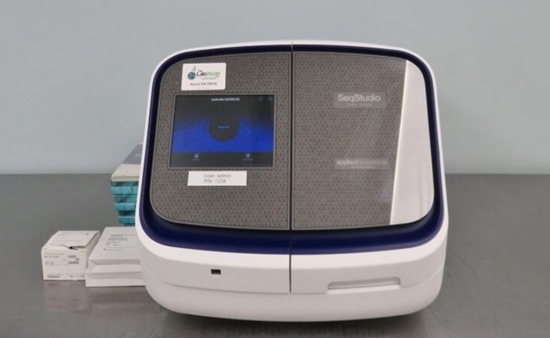
Let’s all be faster. In January 2024, Associated Press reported that the U.S. biotech company Thermo Fisher had decided, in mid-2023, to stop selling “human identification products in Tibet ‘based on a number of factors.’ It did not specify the ‘factors.’ ”
There’s only two factors. The first factor is that China’s totalitarian regime targets Tibetans and other groups for more than the usual amount of oppression it doles out, in addition to targeting everybody else for the usual amount. The second factor is the flak that Thermo Fisher has received for aiding and abetting this oppression.
This was a rerun for Thermo Fisher. And the fact that it was willing to operate in Tibet shows that it had not extracted a sufficiently general guideline or principle from the objections to its previous work aiding and abetting Chinese Communist Party oppression.
The move by the biotech company, which in 2019 took similar measures in the ethnic region of Xinjiang, came at a time of concerns on the Capitol Hill over Beijing’s human rights record. About a year ago, a bipartisan group of lawmakers demanded to know if the company was certain its equipment was not used to aid or abet rights abuses in China, following reports that the Chinese government had been collecting DNA data from hundreds of thousands of Tibetans.
Several years earlier, lawmakers had demanded to know about the company’s activities in Xinjiang. In February 2019, Fortune reported that “Biotech Giant Thermo Fisher Stops Selling DNA Sequencers in Repressive Chinese Region [Xinjiang].”
Human Rights Watch said in late 2017 that Thermo Fisher was supplying some of the DNA sequencers for this project. The NGO confronted the company, only to be told that “it is not possible for us to monitor the use or application of all products we manufactured.”
Since then, however, U.S. politicians got involved, in particular Florida Sen. Marco Rubio, who pushed for a crackdown on the use of American technology in human rights violations by the Chinese authorities.
On Wednesday, the Wall Street Journal reported Thermo Fisher as saying it had taken account of “fact-specific assessments,” and that it recognizes “the importance of considering how our products and services are used—or may be used—by our customers.”
Words. In June 2021, The New York Times reported:
The police in the Chinese region of Xinjiang are still buying hundreds of thousands of dollars’ worth of American DNA equipment despite warnings from the U.S. government that the sale of such technologies could be used to enable human rights abuses in the region.
But Chinese government procurement documents and contracts reviewed by The New York Times show that goods made by two American companies—Thermo Fisher and Promega—have continued to flow to the region, where a million or more residents, mostly Muslim Uyghurs, have been incarcerated in internment camps. The sales are happening through Chinese firms that buy the products and resell them to the police in Xinjiang.
Perhaps Thermo Fisher and Promega had by 2021 stopped selling their expensive kits directly to Xinjiang. If Xinjiang officials could nevertheless still easily buy loads of the kits, this tends to confirm the theory that China is one of the countries in which it is possible to move stuff around.
In January 2024, the outgoing chairman of the Select Committee on the Chinese Communist Party, Mike Gallagher, said that it was good that Thermo Fisher was going to stop selling its DNA kits in Tibet but that “the continued sale of these products throughout the rest of China will continue to enable the CCP’s techno totalitarian surveillance state. Thermo Fisher needs to immediately stop the sale of all DNA collection kits to all of China.”
Any company selling the kind of thing that the Chinese Communist Party uses to surveil and oppress its subjects should not be wondering whether to stop selling it to the CCP or how many phases of decoupling to implement. Just stop, cold turkey.
Also see:
CitizenLab.ca: “Mass DNA Collection in the Tibet Autonomous Region from 2016–2022”
“We estimate that between June 2016 and July 2022, police may have collected between roughly 919,282 and 1,206,962 DNA samples, representing between one quarter (25.1%) and one third (32.9%) of Tibet’s total population (3.66 million). Police have targeted men, women, and children for DNA collection outside of any ongoing criminal investigation.”





